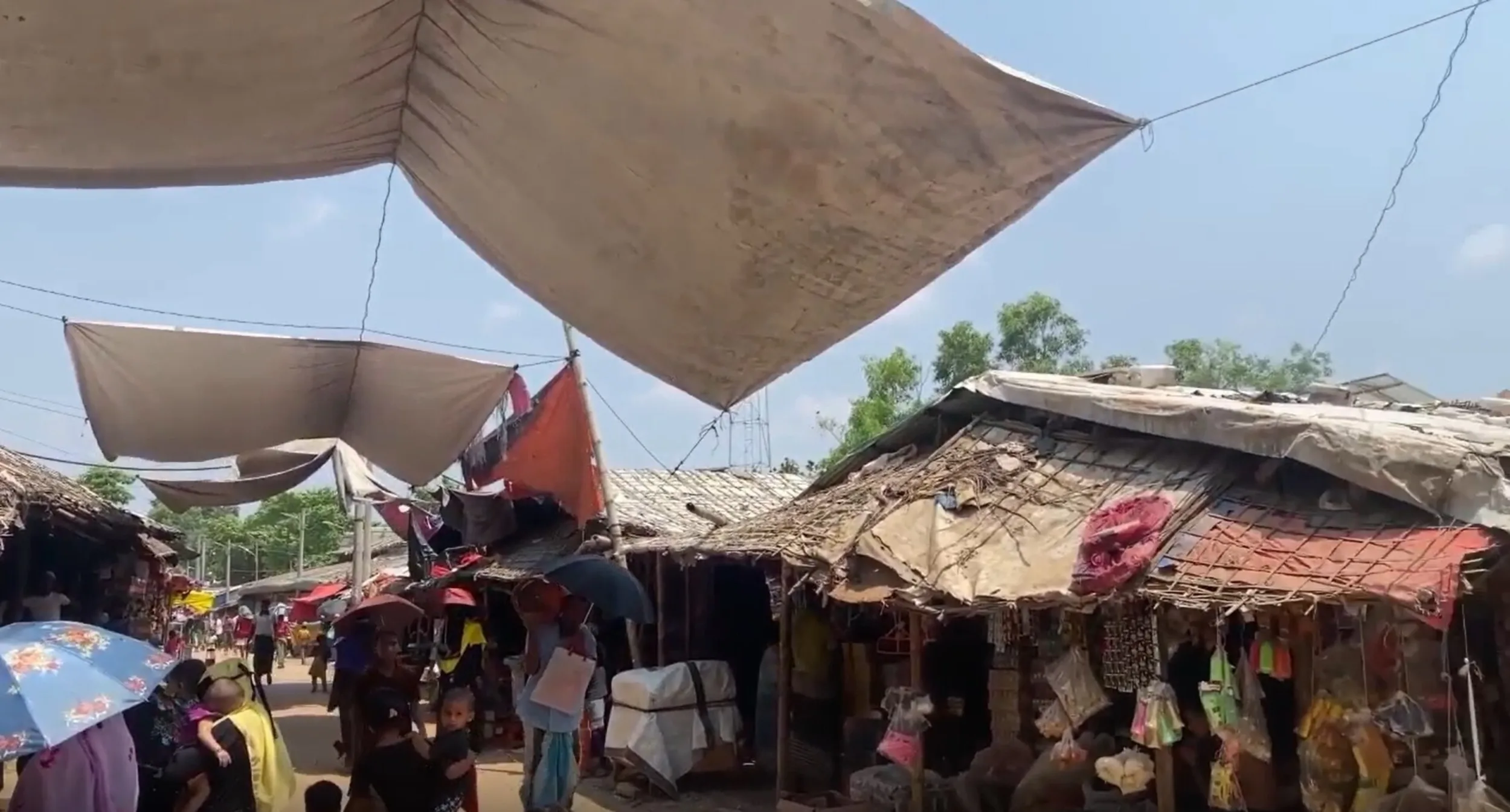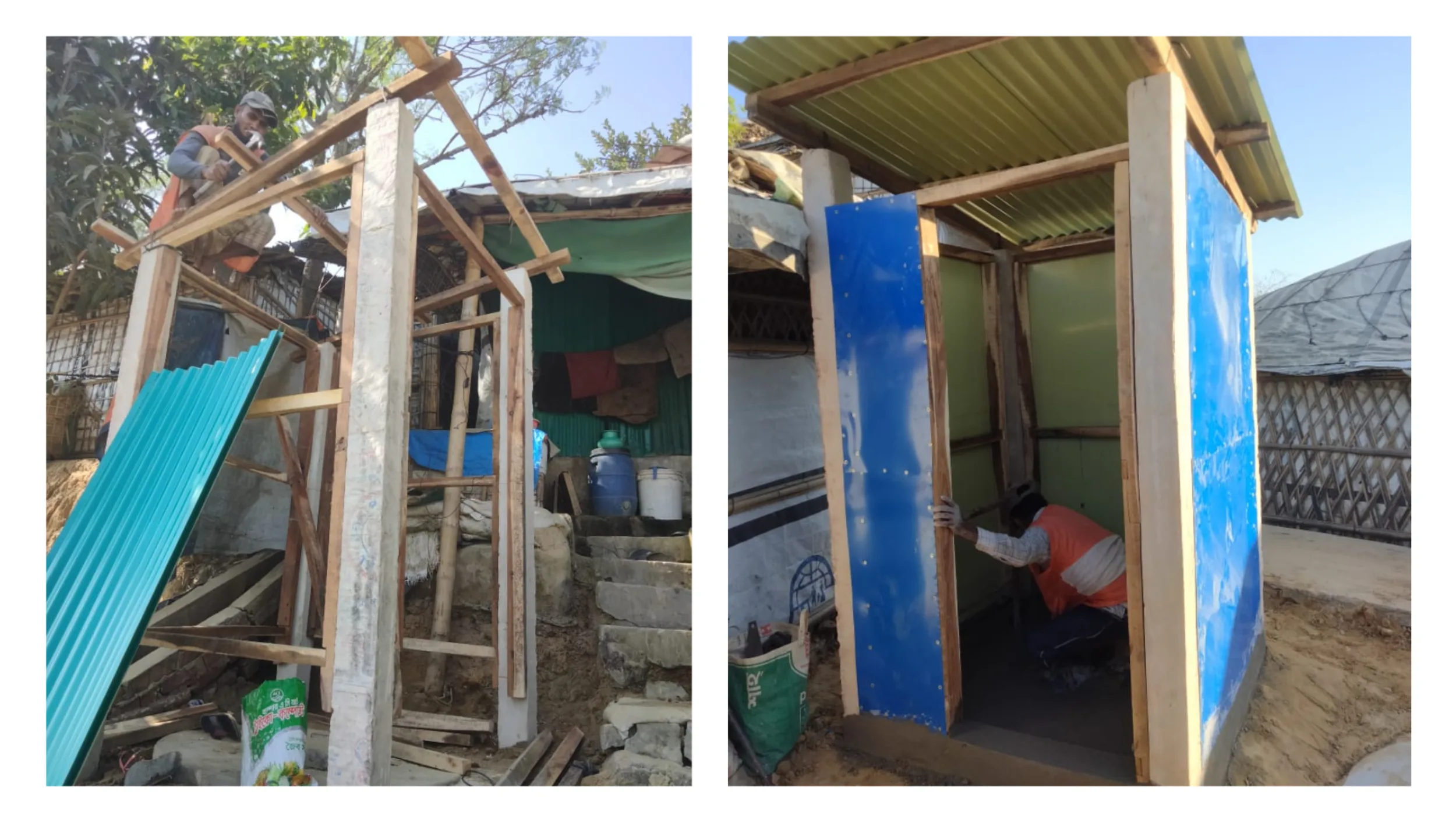An estimated 122.6 million people around the world have been forced to flee their homes as of June 2024*.
Every refugee carries a unique story; pain, loss, resilience, and unimaginable strength. They are not defined by what they’ve lost, but by the courage with which they rebuild their new lives. We mark World Refugee Day by sharing their stories of hope, strength, courage, of community, and to show solidarity.
Although up to 80% of current refugees in Cox’s Bazaar have now lived in a camp for almost eight years since 2017**, there are restrictions limiting any repairs that make their homes more ‘permanent’ in Bangladesh.
Habitat New Zealand’s work with Habitat Bangladesh is about working together with Rohingya refugees from Myanmar in Cox’s Bazaar, Bangladesh, to improve their living conditions and build resilience as they navigate living in refugee camps.
Habitat strives to make a positive impact for families while still working within current restrictions, such as providing and installing tarpaulins to stop roof leaks and bamboo reinforcements to repair structures.
“Before, when it rained, water would enter the house. Now, after putting up the tarpaulin, the rain doesn't come,” says Nur, a community member.
“It was broken,” says another woman about her home before repairs were made.
Since mid-2024, Habitat has repaired 300 shelters and restored 200 tubewells (a source of drinking water) and sanitation facilities — lifelines for clean water and hygiene. In some camps, anywhere from five to nine households can share one latrine, meaning repairs to one sanitation facility can improve the living conditions of many people.
The programme also goes beyond patching up structures; bundles of shelter material are being distributed, and refugees are learning how to maintain their homes through group training sessions. Hygiene training takes place after upgrading facilities, equipping families with knowledge to maintain clean and healthy environments. Local workers are also being trained, ensuring these skills stay within the community.
“There are still lots of broken houses. If you can repair those, we all will be very much thankful,” says another man living in a Cox’s Bazaar camp.
Together, we can do more.
Now more than ever, we must continue to show solidarity with refugees around the world.
If you wish to make a donation via credit card over the phone, please phone us on (09) 579 4111
You can donate via internet banking:
Habitat for Humanity New Zealand
ANZ
06-0177-0127197-00
If you wish your donation to go to a specific appeal please include in the payment Reference
If you make a donation on our website your receipt will be emailed to you automatically.
If you choose to donate via internet banking, you will receive your receipt via email 1-2 days after you make your donation. If no email address is given, your receipt will be posted to the address given.
Donations over $5.00 are tax deductible. You can submit your receipt to IRD website, and they will process your tax rebate.
Yes, you can give regular monthly donations to your chose Habitat for Humanity appeal. Just select 'give monthly' when processing your donation payment.
You can change, cancel or suspend your monthly donation at any time. Please email us at info@habitat.org.nz, or phone us on (09) 579 4111.
Your credit card will be charged once you submit your first monthly gift, and future donations will be made on that same day going forward. If you wish to change your payment date to better suit your pay cycle, please get in touch via information@habitat.org.nz, or phone us on (09) 579 4111 and we can easily action that for you.
Yes, you will receive an annual tax receipt at the close of the financial year, recording all donations.
Yes, if you wish to donate via internet banking, our details are
Habitat for Humanity New Zealand
ANZ
06-0177-0127197-00
If you wish your donation to go to a specific appeal, please enter into your Reference
One tax receipt recording all your donations for the financial year, making it easy to claim your tax rebate.
With small payments spread out month to month, becoming a HopeBuilder can suit any budget. Even a small amount can have a huge impact.
Your donation occurs automatically each month, and you can pause, downgrade, upgrade, or cancel at any time.
Your regular support ensures long-term impact, all year long.
Please fill in the below enquiry form and we will be in touch soon.
Please fill in the below enquiry form with your details and we will be in touch within 2 working days.


